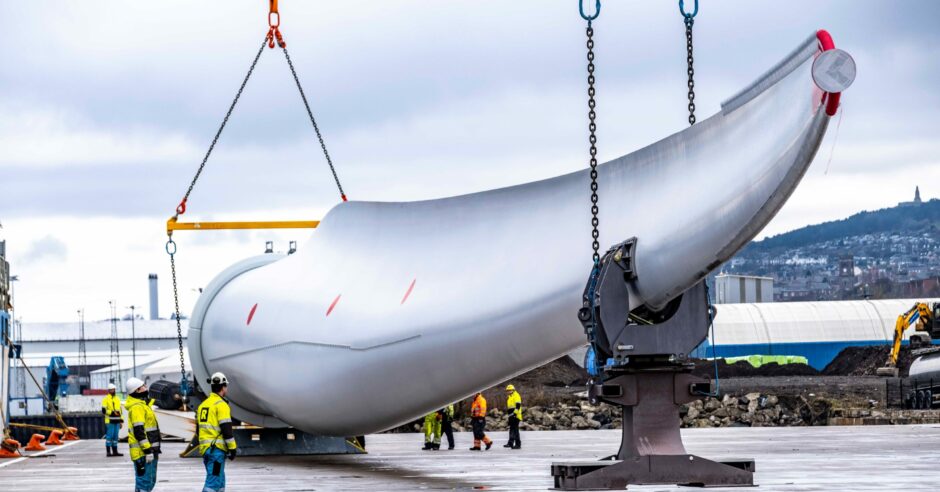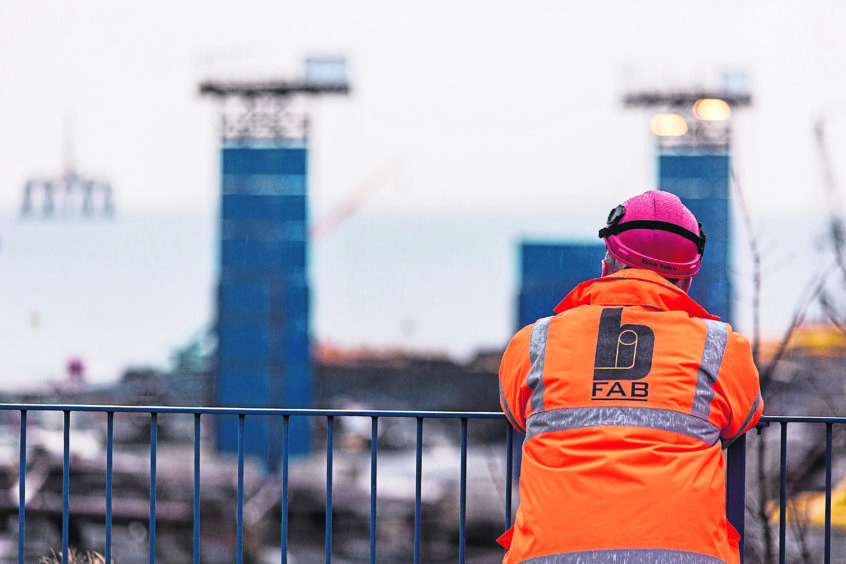
New analysis finds that that Aberdeen city and shire could support 33,800 “clean” jobs in key transition sectors within ten years, but urges government to support policies that will benefit local communities and workers.
The analysis, commissioned by Platform and prepared by Transition Economics, examines the potential for clean job creation across four regions rich in oil and gas-related skills, including Aberdeen city and shire, Fife and Tayside, Tyneside and Teesside.
All have significant employment within oil and gas and the wider supply chain – including residents who travel to work offshore – offering a pathway for those looking to move into new roles as part of a wider “just transition”.
The report estimates that the north-east could support 24,500-33,800 jobs in several key “clean” sectors, with a similar range offered by Fife and Tayside (up to 34,200) – and campaigners have now called on policymakers to “get on with it.”
Boosting local content
The report examined the possibilities of a host of clean energy-related technologies, from wave energy to EV charging and transmission networks, but settled on three key sectors which have the greatest job-creating potential: domestic energy efficiency retrofits; offshore wind and hydrogen electrolyser manufacture and services.
The north east stands to gain the most from offshore wind and its supply chain, which could together support around 13,900 jobs in the region by 2032 – around 10% of the UK total.
Echoing longstanding complaints from unions, Platform notes that despite the UK’s rapid deployment of the technology over the past decade, “job creation has not met expectations and promises” as construction and manufacturing benefits have largely gone overseas.
“If existing public investment is scaled up to boost domestic content, then significantly more manufacturing jobs will be located within these regions,” the report adds. “Policy-makers can learn from the lacklustre job creation in the early years, and capture the full jobs benefits of the massive offshore wind roll-out that is coming.”
More than 17,000 jobs would also be supported by retrofitting and upgrading more than 200,000 homes in the north east to improve efficiency via, for example, better insulation, windows and heating systems.
Finally, it finds that up to 2,500 jobs could be supported by an electrolyser manufacturing industry, which would also provide equipment and skills for export – or around 10% of whole UK sector, according to data from the Offshore Renewable Energy Catapult.
The point is a timely one. As in the case offshore wind, many have already questioned how the much-hyped hydrogen sector will be possible without the establishment of more local manufacturers for the technology.
Just transition
It should be noted that in this case researchers focused on the impact of “community-wide job creation” – meaning its latest analysis does not quantify the potential for current offshore oil and gas workers to transition into new clean jobs, including the skills and qualification requirements, pay scales, job conditions or transition pathways.
It does however chime roughly with work prepared by RGU earlier this year, which found that £17bn of renewables investment and activity over the next eight years could secure 54,000 direct and indirect jobs in the north east by 2030 – up from 45,000 today.
However, the same report also found that a less ambitious scenario without vital investment could see up to 17,000 jobs at risk, with workforce numbers falling by up to 40% to 28,000 over the same period.
RMT Union organiser and ex-oil rig worker Jake Molloy welcomed the latest findings.
“This research shows that it is possible to phase out oil and gas in a way that doesn’t leave whole communities at risk, and now we need politicians to get on with it,” he said.
“Any talk of a just transition will mean nothing if the offshore oil and gas workers aren’t supported in the move to renewables. As we phase out North Sea oil and gas, we need to see protections in place for workers – job guarantees, skills transfers and vastly improved conditions.
“As it currently stands, workers are finding it difficult to gain jobs in the offshore wind sector due to obstructive training standards bodies, whilst being subject to rapidly worsening conditions in terms of pay, safety and job security in offshore oil and gas.”
While Platform says some roles will be “necessarily created” a wider transition to a zero-carbon economy, it urges for strong policy support, adding that jobs should “decent and secure”, be available and accessible to residents, offer fair pay, upskilling opportunities and good health and safety practices – all of which “requires the right policy mix on the part of government.”
Platform’s just transition advocacy campaigner Rosemary Harris warned of the consequences if the message was not heeded.
“Continued oil and gas extraction is bad for workers and bad for the climate,” she added.
“We urgently need to scale up alternatives and enable workers in high carbon industries to transition to renewables. Simply clinging on to the fossil fuels of the past isn’t enough, and only serves to harm workers who could end up stranded in these industries as they are phased out.”
Recommended for you

